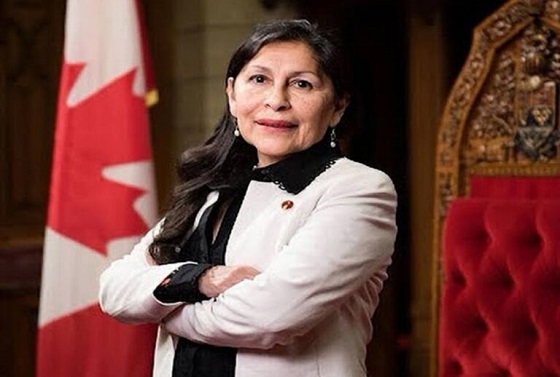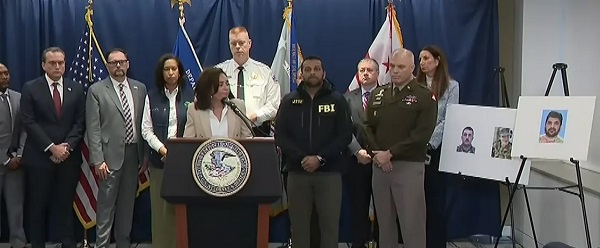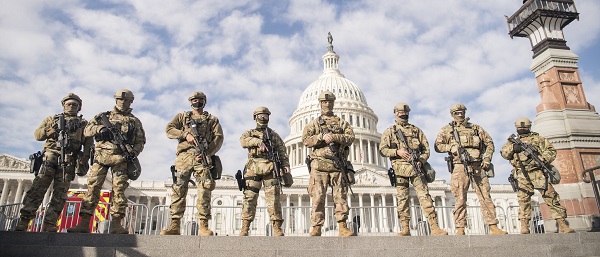Censorship Industrial Complex
The Authoritarian Legacy of Justin Trudeau

If you’re tired of censorship and surveillance, subscribe to Reclaim The Net.
Freedom in the Rearview Mirror
|
After nearly a decade in office, after attempts at photogenic diplomacy and tearful apologies, Justin Trudeau is stepping down as Canada’s Prime Minister, leaving behind a legacy as divisive as it is dramatic. To some, he was the poster child for progressive leadership, a leader who championed climate action and diversity while bringing Canada into the global spotlight.
To others, he was an over-polished politician whose tenure was defined by censorship, economic mismanagement, and the weaponization of state power against his own citizens. His resignation marks the end of an era—one defined as much by lofty rhetoric as by policies that left a deep mark on civil liberties and public trust. So, what’s Trudeau’s Canada after nearly ten years? A land of progressive aspirations or a dystopian Pinterest board?
Censorship: The Friendly Autocrat Edition
Few things capture Trudeau’s tenure better than his government’s legislative war on free speech. Let’s start with the dynamic duo of digital overreach: Bill C-10: “Regulating the Unregulatable” The saga of Bill C-10 began innocently enough. Trudeau’s government framed the bill as a noble effort to modernize the Broadcasting Act. After all, the law hadn’t been updated since 1991, back when Blockbuster was thriving and the internet was just a nerd’s dream. The goal, they said, was to “level the playing field” between traditional broadcasters and streaming giants like Netflix and YouTube. Sounds fair, right? Not so fast. The devil was in the details—or the lack thereof. The bill gave Canada’s broadcast regulator, the Canadian Radio-television and Telecommunications Commission (CRTC), sweeping authority to police online content. Originally, user-generated content like vlogs, TikTok dances, or indie films were supposed to be exempt. However, midway through the legislative process, Trudeau’s government quietly removed those exemptions. Suddenly, your cat video could be classified as “broadcast content,” giving bureaucrats the power to decide whether it met Canadian cultural standards. Critics, including legal scholars and digital rights groups, raised the alarm. They argued that the bill’s language was so vague it could allow the government to dictate what Canadians saw, shared, or created online. The specter of state-controlled algorithms choosing what gets promoted on platforms was too close to censorship for comfort. But the government dismissed the concerns, painting critics as alarmists. In Trudeau’s Canada, wanting clear limits on government power apparently made you a conspiracy theorist. Bill C-36: Hate Speech or Debate Killer? Not content to merely oversee what Canadians could create, Trudeau’s administration went a step further with Bill C-36, a supposed weapon against online hate speech. If Bill C-10 was about controlling the medium, this bill was about controlling the message.
The problem? The bill’s definition of “hate” was so expansive that it could potentially criminalize unpopular or offensive opinions. The bill didn’t just target clear-cut incitements to violence; it targeted anything deemed likely to expose individuals to “hatred or contempt.” Critics feared that “hatred or contempt” could mean anything from political dissent to sharp critiques of government policies. Even more alarming was the prospect of a “snitch culture.” The bill encouraged private citizens to report each other for suspected hate speech, potentially turning disagreements into legal battles. David Lametti, Trudeau’s Justice Minister, defended the bill, claiming it struck the right balance between free expression and protection from harm. But when legal experts and civil liberties groups united in opposition, it became clear that balance was not the government’s strong suit.
The Financial Freeze Heard ‘Round the World
|
 |
|
The Freedom Convoy protest of 2022.
|
|
The Freedom Convoy—the moment when Canada went from polite protests and Tim Hortons to frozen bank accounts and police crackdowns.
In 2022, when truckers and their supporters descended on Ottawa to protest COVID-19 mandates, Trudeau didn’t meet them with dialogue or even his trademark smile-and-wave. Instead, he dusted off the Emergencies Act, something no prime minister had dared touch before. Overnight, financial institutions became Trudeau’s personal enforcers, freezing accounts of protesters and anyone who dared to support them. Deputy Prime Minister Chrystia Freeland, Trudeau’s second-in-command at the time and a walking, talking LinkedIn connection to global elites, eagerly played bad cop. Under her direction, the financial clampdown turned Canada’s banking system into a political weapon. It wasn’t lost on critics that Freeland’s cozy ties to global financiers made the whole thing look like an international crackdown on dissent. |
 |
|
Then-Finance Minister and Deputy PM Chrystia Freeland.
|
|
And what of the precedent? Trudeau’s message was clear: disagree with the government, and you might lose access to your life savings. It was a masterclass in how to turn financial systems into handcuffs, leaving civil liberties in tatters.
The Media Muzzle: Subsidizing Obedience Also on the chopping block was journalistic independence. Trudeau’s government rolled out legislation forcing media outlets to register with a government body to qualify for funding. On the surface, this was marketed as a lifeline for struggling journalism. Because nothing says “press freedom” like reporters dependent on government handouts, right? It’s a classic move: offer financial aid with one hand and hold the leash with the other. Critics were quick to point out the slippery slope. When the same entity paying the bills also sets the rules, the line between journalism and government PR gets blurry fast. Trudeau, of course, framed this as support for democracy, but the result was a media landscape nervously eyeing its next paycheck while tiptoeing around criticism of its benefactor. Big Brother Gets a Twitter Account Then came the surveillance. Under Trudeau’s watch, Canadian intelligence agencies dramatically expanded their social media monitoring. Initially, this was framed as a necessary tool against extremism. But “extremism,” much like “disinformation,” is a flexible term in the hands of those in power. Activists and protest groups—voices traditionally central to democratic discourse—suddenly found themselves under the microscope. Imagine logging onto X to vent about a new housing policy, only to realize your tweet has been flagged by a government algorithm. The message was clear: dissent might not be illegal, but it was certainly inconvenient. Disinformation: The Government’s New Buzzword Trudeau’s pièce de résistance was his crusade against “disinformation.” This word became the Swiss Army knife of excuses, used to delegitimize critics and corral public opinion. Do you have a bone to pick with government policies? Disinformation. Questioning pandemic mandates? Disinformation. Unimpressed with Trudeau’s latest photo op? You guessed it—disinformation. To hammer the point home, his administration launched a series of public awareness campaigns, ostensibly to educate Canadians about the perils of online misinformation. These campaigns, dripping with paternalistic condescension, often blurred the line between fact-checking and outright propaganda. The subtext was unmistakable: dissent, even if rooted in genuine concerns, was a threat to national cohesion. Canada’s New Normal: The Fear of Speaking Freely The cumulative effect of these policies wasn’t subtle. Everyday Canadians began censoring themselves, not out of respect for others but out of fear of stepping on the wrong bureaucratic toes. Content creators hesitated to tackle divisive topics. Activists wondered whether their next rally would land them on a government watchlist. What was once a robust marketplace of ideas began to resemble a sparsely stocked shelf. And yet, Trudeau’s defenders remain loyal, arguing that his policies were noble attempts to safeguard society. However, as history has repeatedly shown, the road to censorship is paved with the promise of safety, but its destination is a society too scared to speak. The Legacy of Controlled Speech So what’s the verdict? Is Trudeau a misunderstood guardian of democracy, or is he the wolf who prowled under the guise of a shepherd? It’s hard to champion inclusivity and diversity when fewer voices are allowed to join the conversation. Canada may someday reckon with the full implications of these policies, but the damage is already visible. And as Canadians tiptoe around their digital platforms, one question remains: how free is a democracy where everyone whispers? |
|
|
|
You subscribe to Reclaim The Net because you value free speech and privacy. Each issue we publish is a commitment to defend these critical rights, providing insights and actionable information to protect and promote liberty in the digital age.
Despite our wide readership, less than 0.2% of our readers contribute financially. With your support, we can do more than just continue; we can amplify voices that are often suppressed and spread the word about the urgent issues of censorship and surveillance. Consider making a modest donation — just $5, or whatever amount you can afford. Your contribution will empower us to reach more people, educate them about these pressing issues, and engage them in our collective cause. Thank you for considering a contribution. Each donation not only supports our operations but also strengthens our efforts to challenge injustices and advocate for those who cannot speak out.
Thank you.
|
Censorship Industrial Complex
UK Government “Resist” Program Monitors Citizens’ Online Posts

Alberta
Alberta bill would protect freedom of expression for doctors, nurses, other professionals

From LifeSiteNews
‘Peterson’s law,’ named for Canadian psychologist Jordan Peterson, was introduced by Alberta Premier Danielle Smith.
Alberta’s Conservative government introduced a new law that will set “clear expectations” for professional regulatory bodies to respect freedom of speech on social media and online for doctors, nurses, engineers, and other professionals.
The new law, named “Peterson’s law” after Canadian psychologist Jordan Peterson, who was canceled by his regulatory body, was introduced Thursday by Alberta Premier Danielle Smith.
“Professionals should never fear losing their license or career because of a social media post, an interview, or a personal opinion expressed on their own time,” Smith said in a press release sent to media and LifeSiteNews.
“Alberta’s government is restoring fairness and neutrality so regulators focus on competence and ethics, not policing beliefs. Every Albertan has the right to speak freely without ideological enforcement or intimidation, and this legislation makes that protection real.”
The law, known as Bill 13, the Regulated Professions Neutrality Act, will “set clear expectations for professional regulatory bodies to ensure professionals’ right to free expression is protected.”
According to the government, the new law will “Limit professional regulatory bodies from disciplining professionals for expressive off-duty conduct, except in specific circumstances such as threats of physical violence or a criminal conviction.”
It will also restrict mandatory training “unrelated to competence or ethics, such as diversity, equity, and inclusion training.”
Bill 13, once it becomes law, which is all but guaranteed as Smith’s United Conservative Party (UCP) holds a majority, will also “create principles of neutrality that prohibit professional regulatory bodies from assigning value, blame or different treatment to individuals based on personally held views or political beliefs.”
As reported by LifeSiteNews, Peterson has been embattled with the College of Psychologists of Ontario (CPO) after it mandated he undergo social media “training” to keep his license following posts he made on X, formerly Twitter, criticizing Trudeau and LGBT activists.
He recently noted how the CPO offered him a deal to “be bought,” in which the legal fees owed to them after losing his court challenge could be waived but only if he agreed to quit his job as a psychologist.
Early this year, LifeSiteNews reported that the CPO had selected Peterson’s “re-education coach” for having publicly opposed the LGBT agenda.
The Alberta government directly referenced Peterson’s (who is from Alberta originally) plight with the CPO, noting “the disciplinary proceedings against Dr. Jordan Peterson by the College of Psychologists of Ontario, demonstrate how regulatory bodies can extend their reach into personal expression rather than professional competence.”
“Similar cases involving nurses, engineers and other professionals revealed a growing pattern: individuals facing investigations, penalties or compulsory ideological training for off-duty expressive conduct. These incidents became a catalyst, confirming the need for clear legislative boundaries that protect free expression while preserving professional standards.”
Alberta Minister of Justice and Attorney General Mickey Amery said regarding Bill 13 that the new law makes that protection of professionals “real and holds professional regulatory bodies to a clear standard.”
Last year, Peterson formally announced his departure from Canada in favor of moving to the United States, saying his birth nation has become a “totalitarian hell hole.”
-

 Alberta5 hours ago
Alberta5 hours agoFrom Underdog to Top Broodmare
-

 Banks2 days ago
Banks2 days agoThe Bill Designed to Kill Canada’s Fossil Fuel Sector
-

 armed forces2 days ago
armed forces2 days ago2025 Federal Budget: Veterans Are Bleeding for This Budget
-

 Alberta1 day ago
Alberta1 day agoAlberta and Ottawa ink landmark energy agreement
-

 Artificial Intelligence2 days ago
Artificial Intelligence2 days agoTrump’s New AI Focused ‘Manhattan Project’ Adds Pressure To Grid
-

 International1 day ago
International1 day agoAfghan Ex–CIA Partner Accused in D.C. National Guard Ambush
-

 Carbon Tax1 day ago
Carbon Tax1 day agoCanadian energy policies undermine a century of North American integration
-

 International2 days ago
International2 days agoTrump Admin Pulls Plug On Afghan Immigration Following National Guard Shooting







